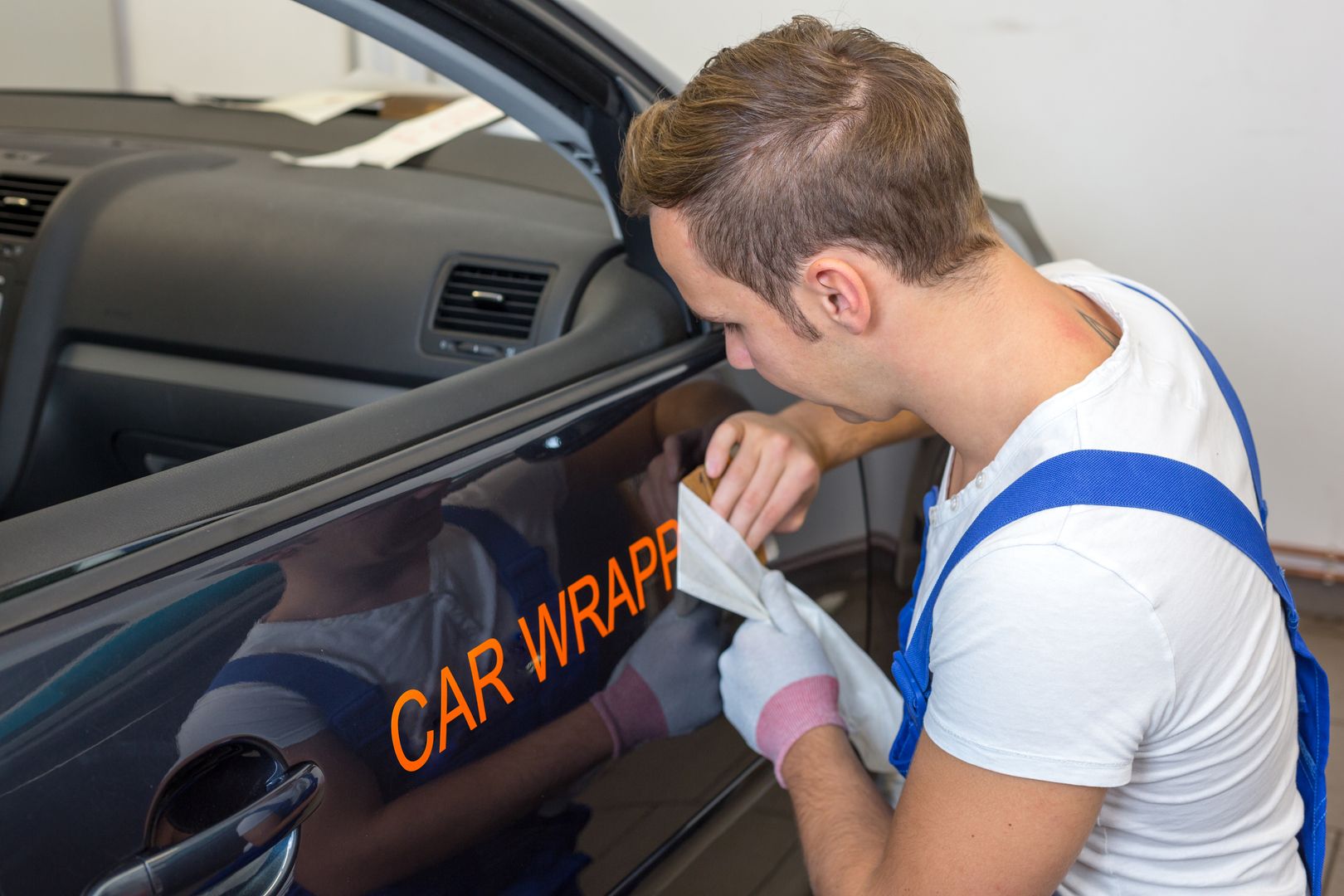
Faq
What is a vinyl car wrap?
A vinyl car wrap is a customization option for vehicles where a specially designed vinyl material is applied directly over the car's original paint. This vinyl material comes in various colors, finishes, and textures, allowing for a wide range of customization possibilities. The process involves meticulously wrapping the vinyl around the contours of the vehicle's body, providing a seamless and often transformative new look. Vinyl car wraps can completely change the appearance of a vehicle, giving it a fresh, customized aesthetic while offering some protection to the original paint underneath.
How long does a vinyl car wrap last?
The longevity of a vinyl car wrap depends on several factors, including the quality of the vinyl material used, the skill of the installation, the environmental conditions the vehicle is exposed to, and how well the wrap is maintained. Generally, a professionally installed vinyl car wrap can last anywhere from 3 to 7 years or more if properly cared for.
High-quality vinyl materials with UV inhibitors tend to have better resistance to fading and deterioration from sunlight exposure. Additionally, wraps installed by experienced professionals are less likely to peel or lift over time.
Regular maintenance, such as washing the car by hand with a mild detergent and avoiding abrasive cleaning methods, can also extend the lifespan of the vinyl wrap. Overall, while vinyl car wraps are a durable and long-lasting option for vehicle customization, their lifespan can vary depending on various factors.
What types of finishes and colors are available for vinyl car wraps?
Can a vinyl car wrap be removed?
Yes, one of the advantages of vinyl car wraps is that they can be removed without causing damage to the underlying paint of the vehicle. When installed correctly and removed properly, the vinyl wrap should peel away cleanly, leaving the original paint intact.
The removal process typically involves heating the vinyl with a heat gun to soften the adhesive, which makes it easier to peel off. Sometimes, a residue may remain after the vinyl is removed, but this can usually be cleaned off with adhesive remover and some gentle rubbing.
It's important to note that the ease of removal can depend on factors such as the quality of the vinyl material, the duration of the wrap's installation, and the environmental conditions the vehicle has been exposed to. Additionally, wraps that have been installed for an extended period may require more effort to remove.
Overall, if you decide to remove a vinyl car wrap, it's recommended to have it done by a professional to ensure a smooth and damage-free process.
How much does it cost to wrap a car?
How long does it take to wrap a car?
Generally, a standard full car wrap can take anywhere from one to five days to complete. Smaller vehicles or partial wraps may take less time, while larger vehicles or those with intricate designs may take longer. Additionally, if any repairs or surface preparation are needed before wrapping, it could add to the overall time.
Discussing the timeline with the wrap installer beforehand is essential to ensure that it aligns with your schedule and expectations.
Can I wash my car after it's been wrapped?
Are vinyl car wraps suitable for all types of vehicles?
Can I design my own custom vinyl car wrap?
Will a vinyl car wrap protect my car's paint?
Are vinyl car wraps resistant to fading and UV damage?
How does the installation process of a vinyl car wrap work?
The installation process for a vinyl car wrap typically involves several steps:
-
Surface Preparation: The surface of the vehicle must be thoroughly cleaned to remove any dirt, dust, wax, or other contaminants that could affect the adhesion of the vinyl wrap. This often involves washing the vehicle with soap and water, followed by wiping it down with a special cleaning solution to ensure a clean surface.
-
Measurement and Design: Before applying the vinyl wrap, precise measurements of the vehicle are taken to ensure that the wrap will fit correctly. The design of the wrap is also carefully planned out, taking into account any curves, contours, or features of the vehicle that may affect the application process.
-
Cutting and Trimming: Once the design is finalized, the vinyl material is cut to the appropriate size and shape using specialized cutting tools. Extra care is taken to ensure that the vinyl is trimmed accurately to fit the contours of the vehicle perfectly.
-
Application: The vinyl wrap is then applied to the vehicle's surface using a combination of heat and pressure. Heat helps to activate the adhesive on the back of the vinyl, allowing it to conform to the shape of the vehicle smoothly. Pressure is applied using squeegees or rollers to ensure that the vinyl adheres securely to the surface without any air bubbles or wrinkles.
-
Post-Installation Finishing: After the vinyl wrap is applied, any excess material is trimmed away, and any seams or edges are carefully sealed to ensure a clean and professional finish. The vehicle is then inspected to ensure that the wrap is applied correctly and that there are no defects or imperfections.
Overall, the installation process for a vinyl car wrap requires skill, precision, and attention to detail. It's often best left to professionals who have experience working with vinyl wraps and the necessary tools and equipment to ensure a high-quality result.
